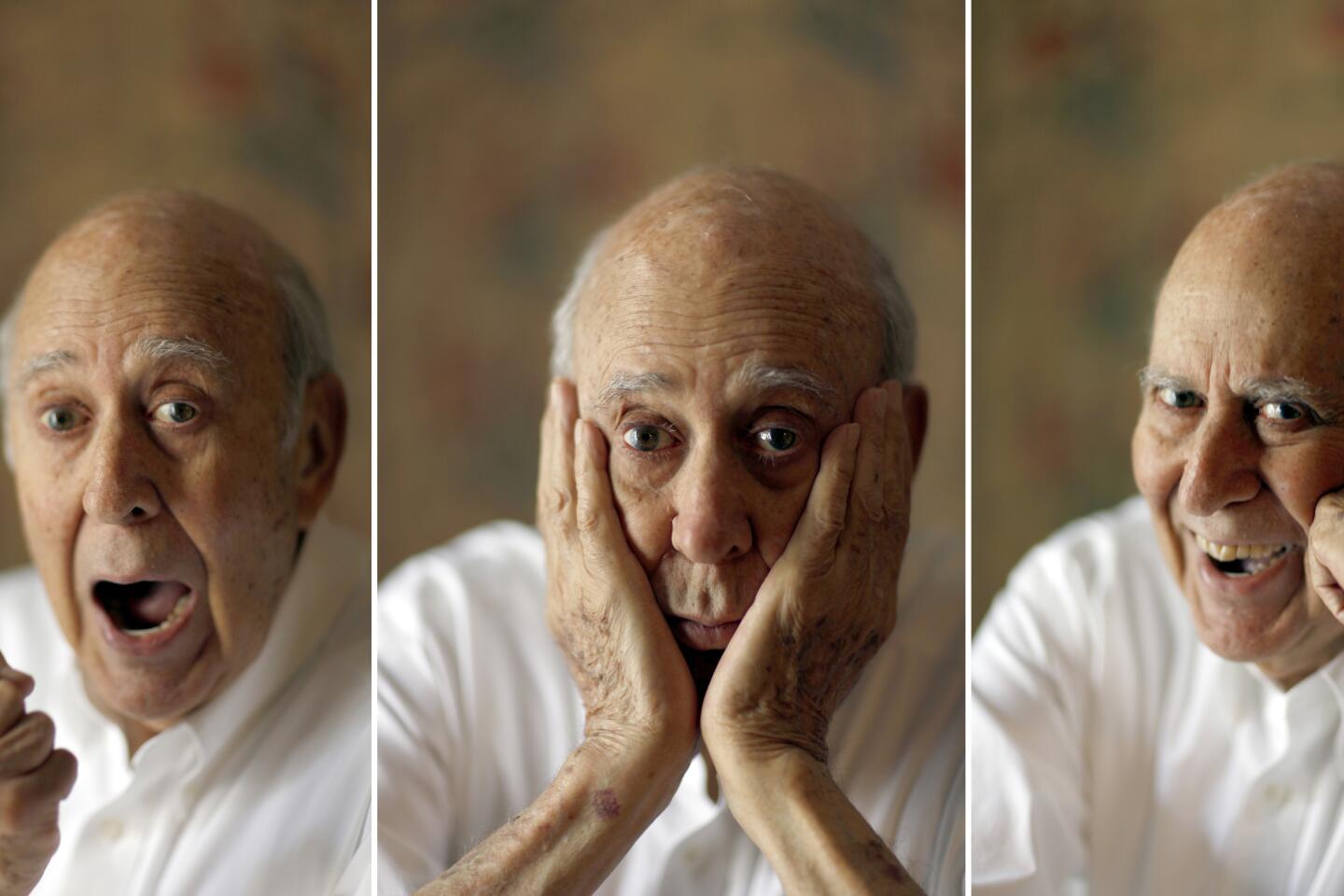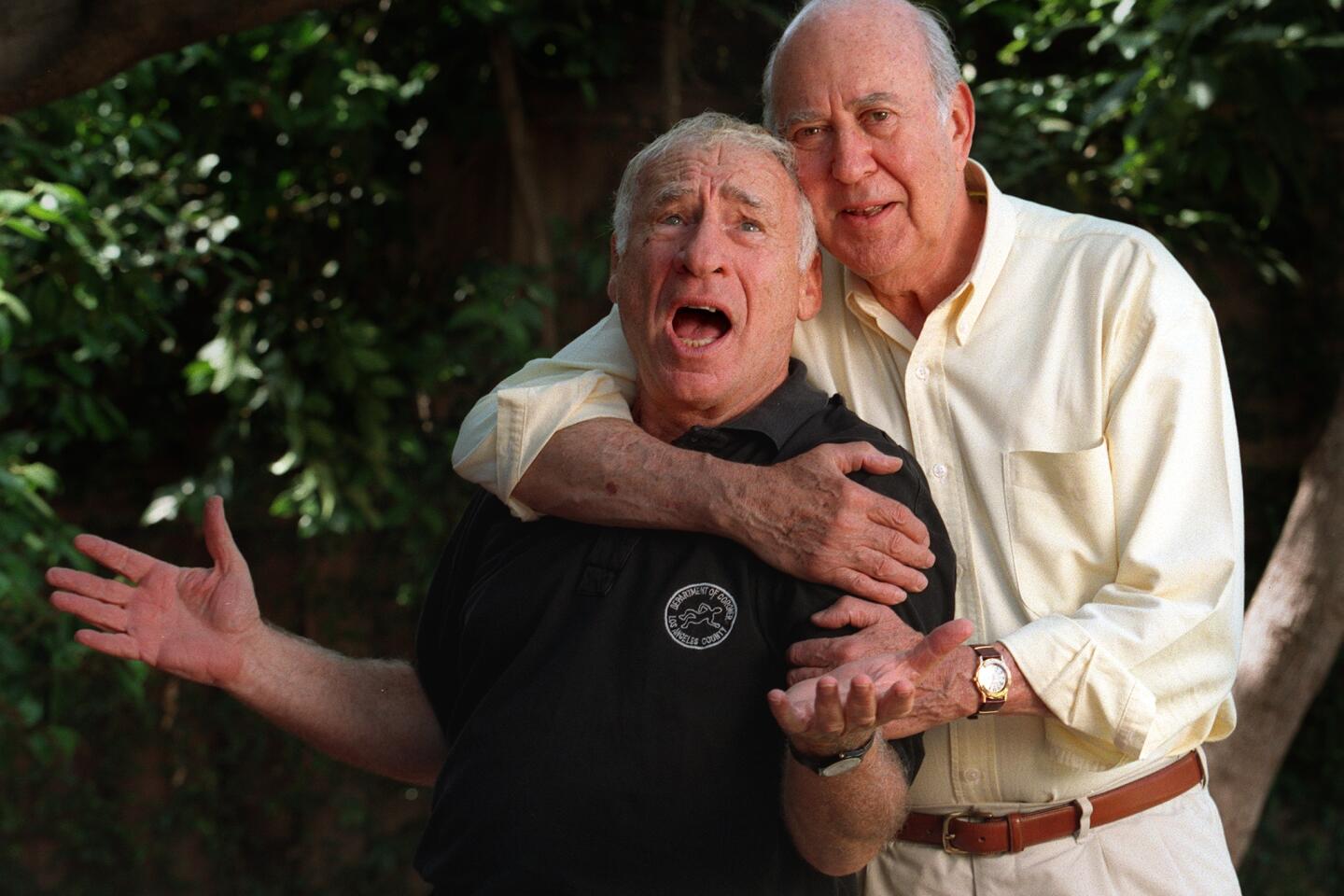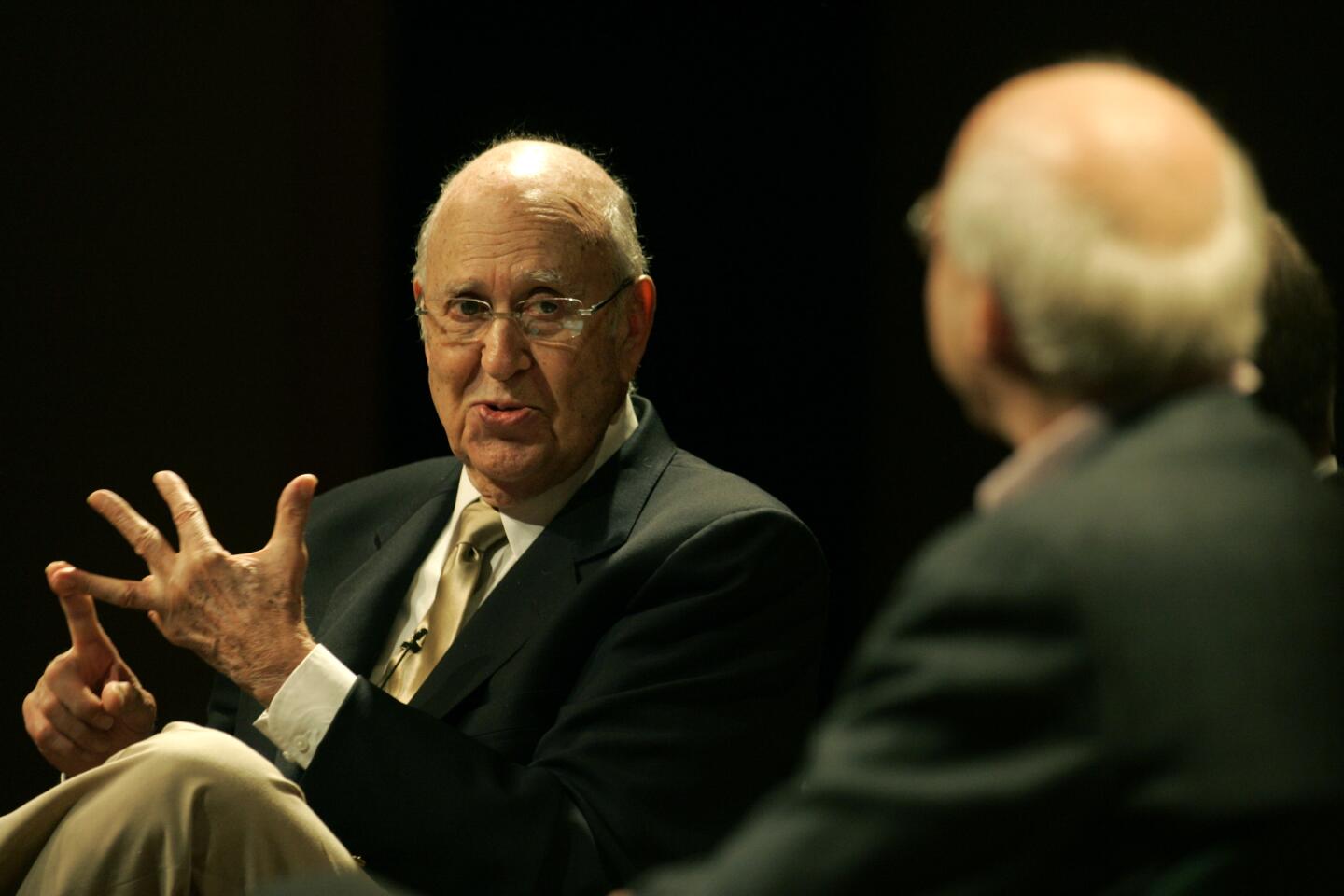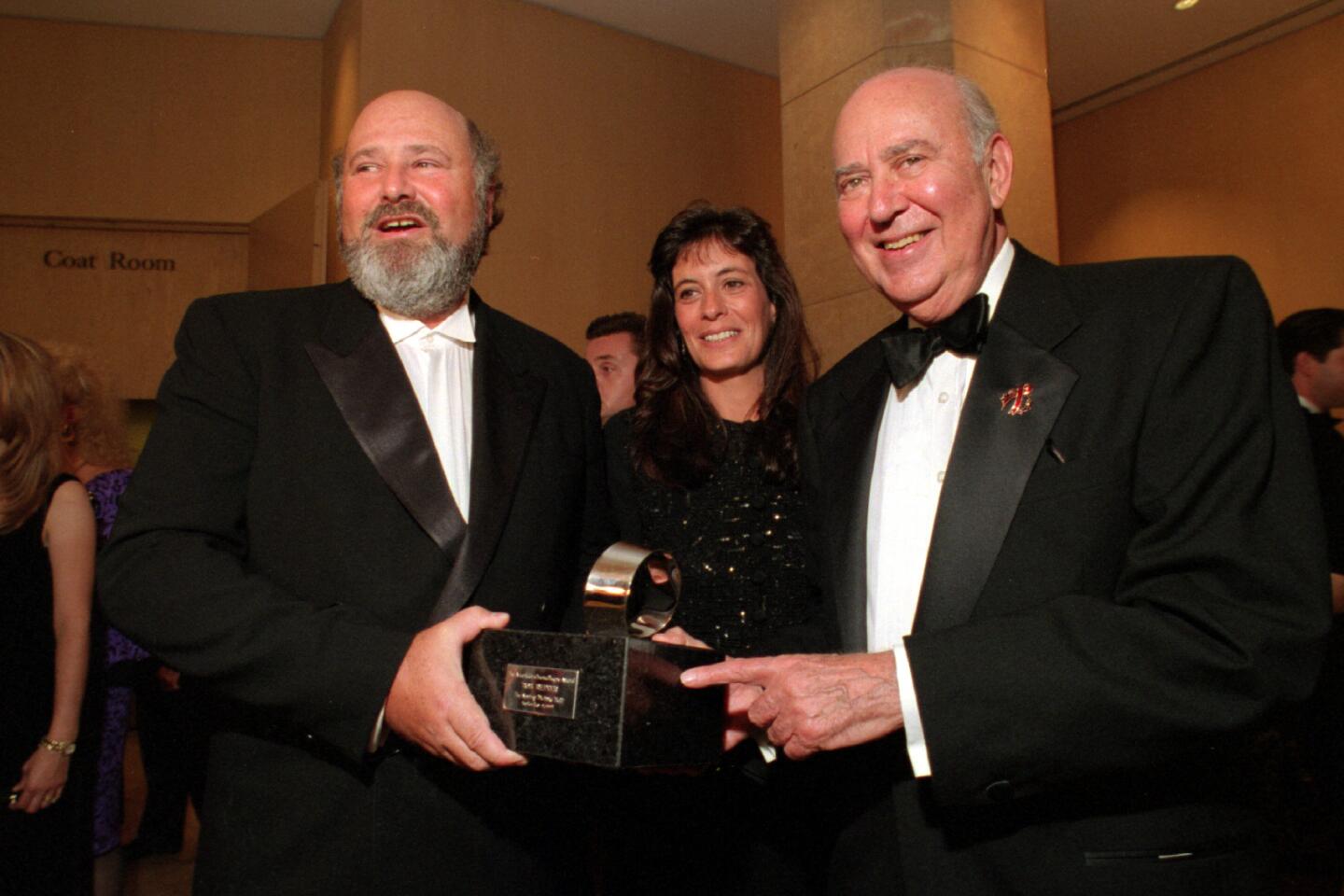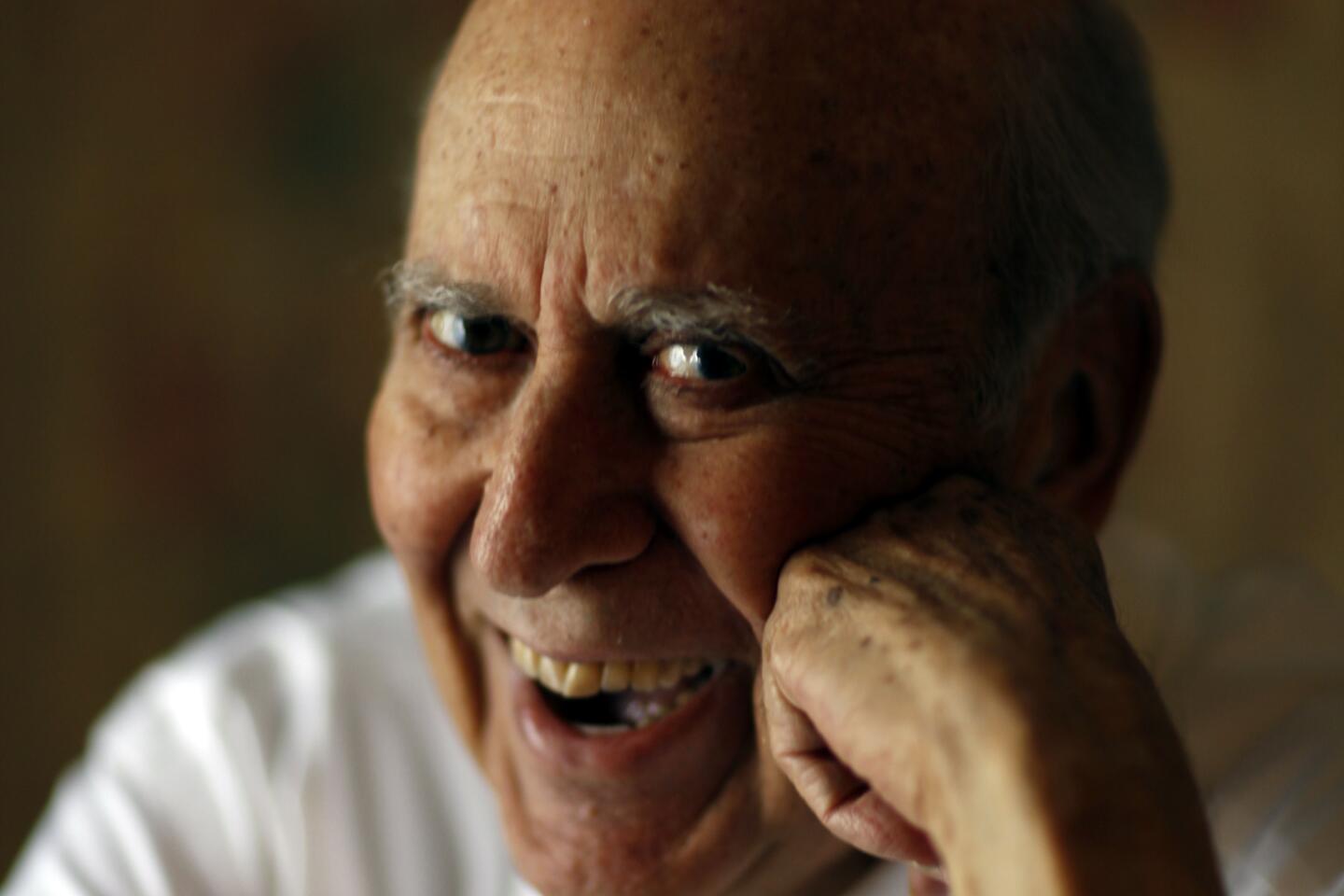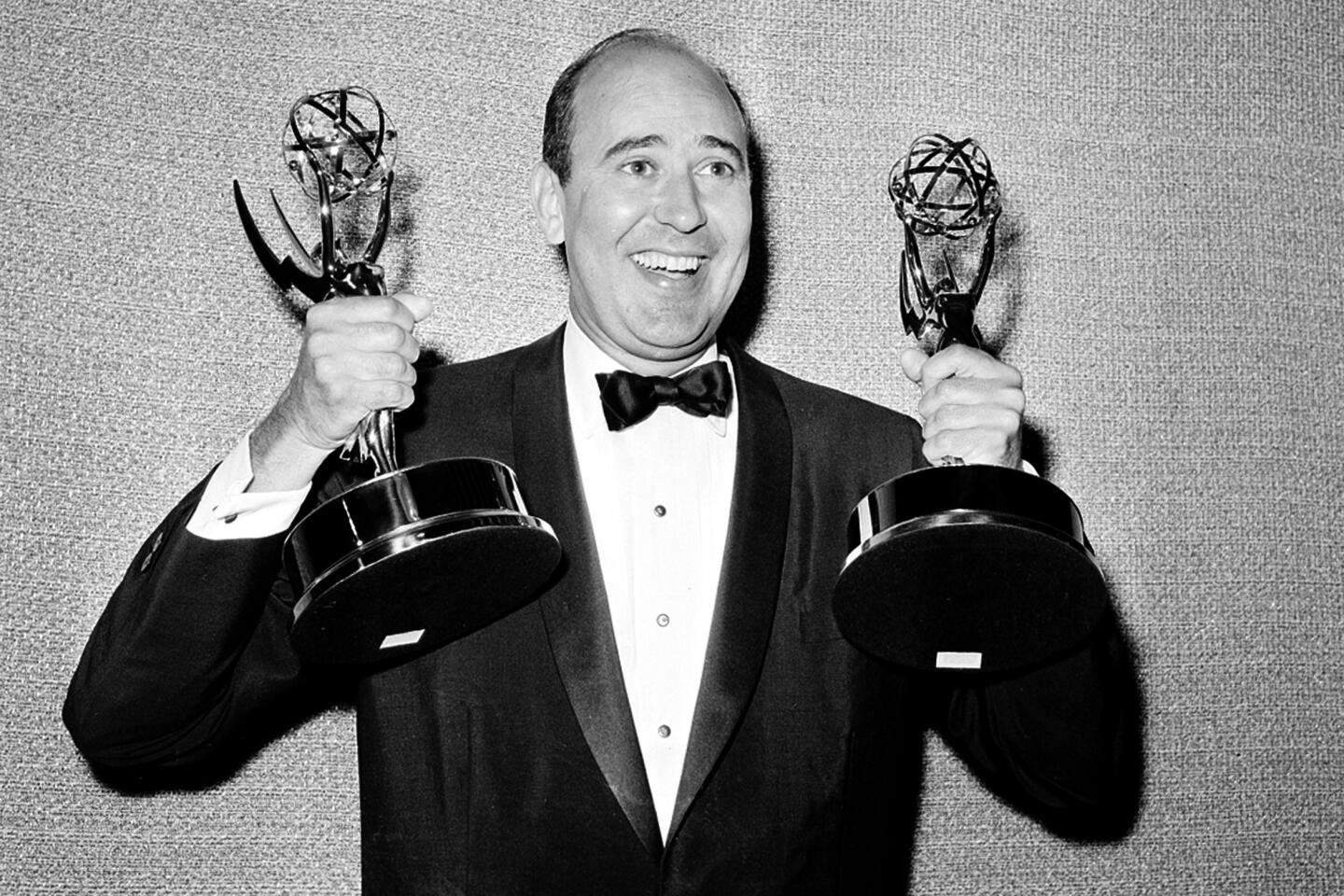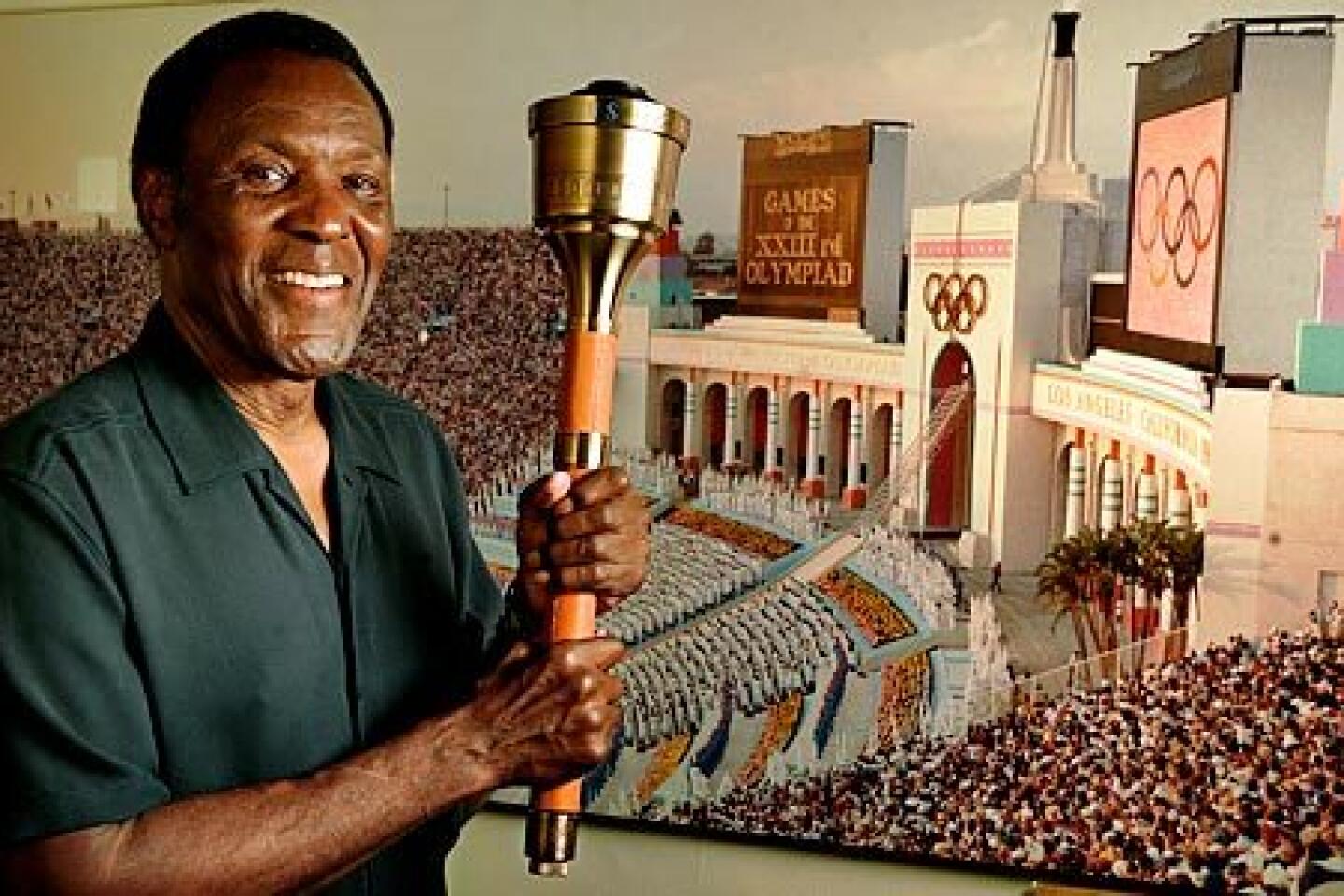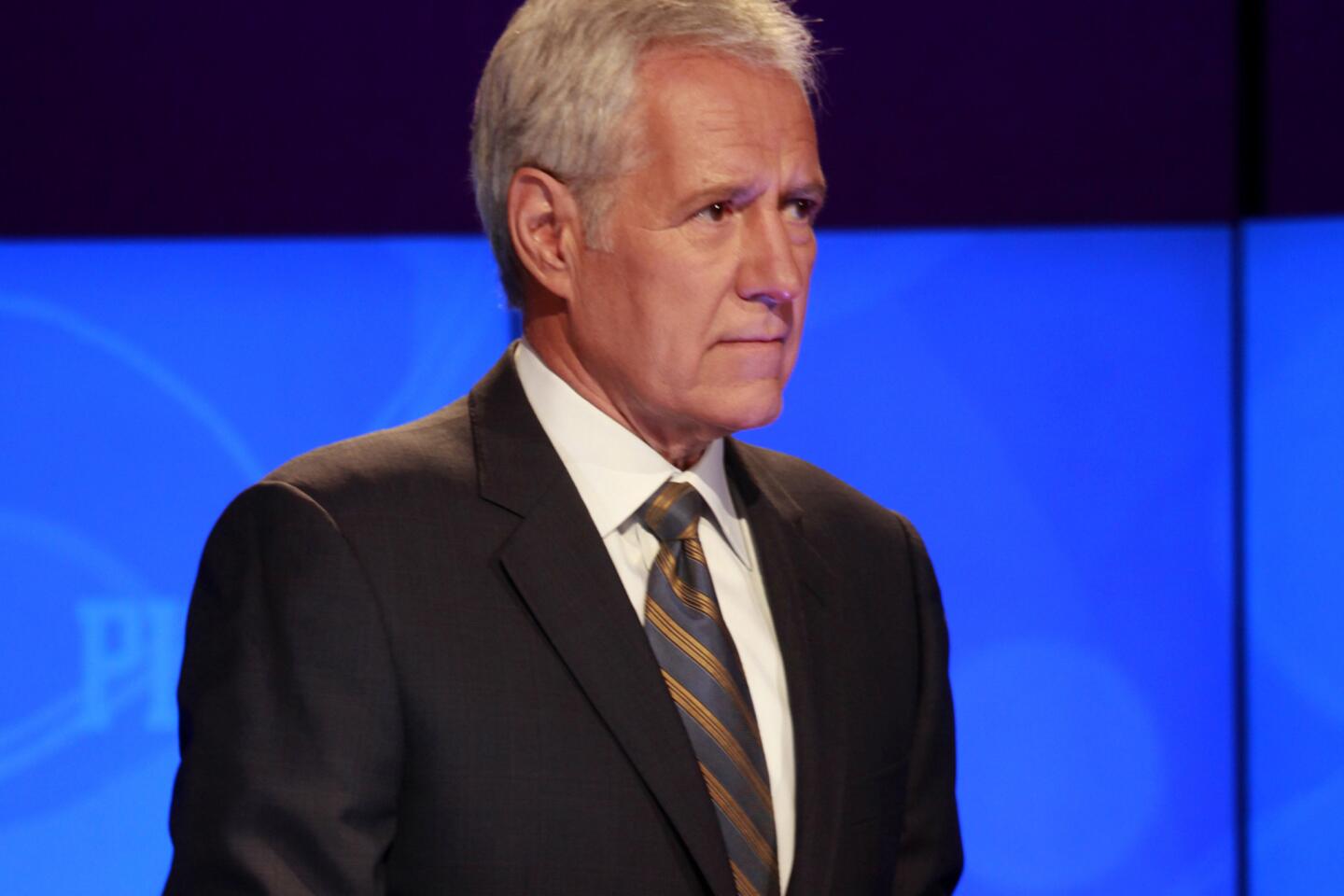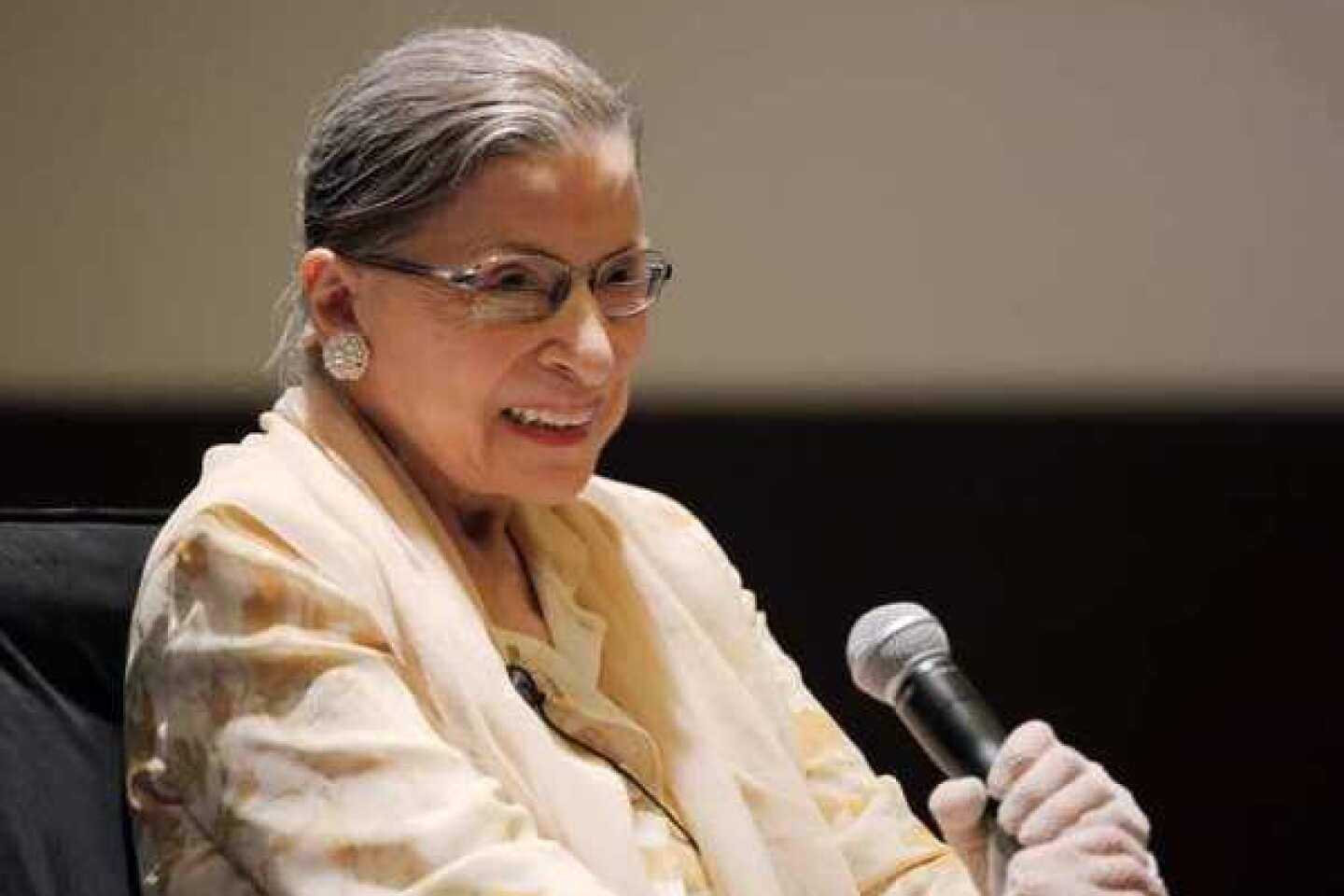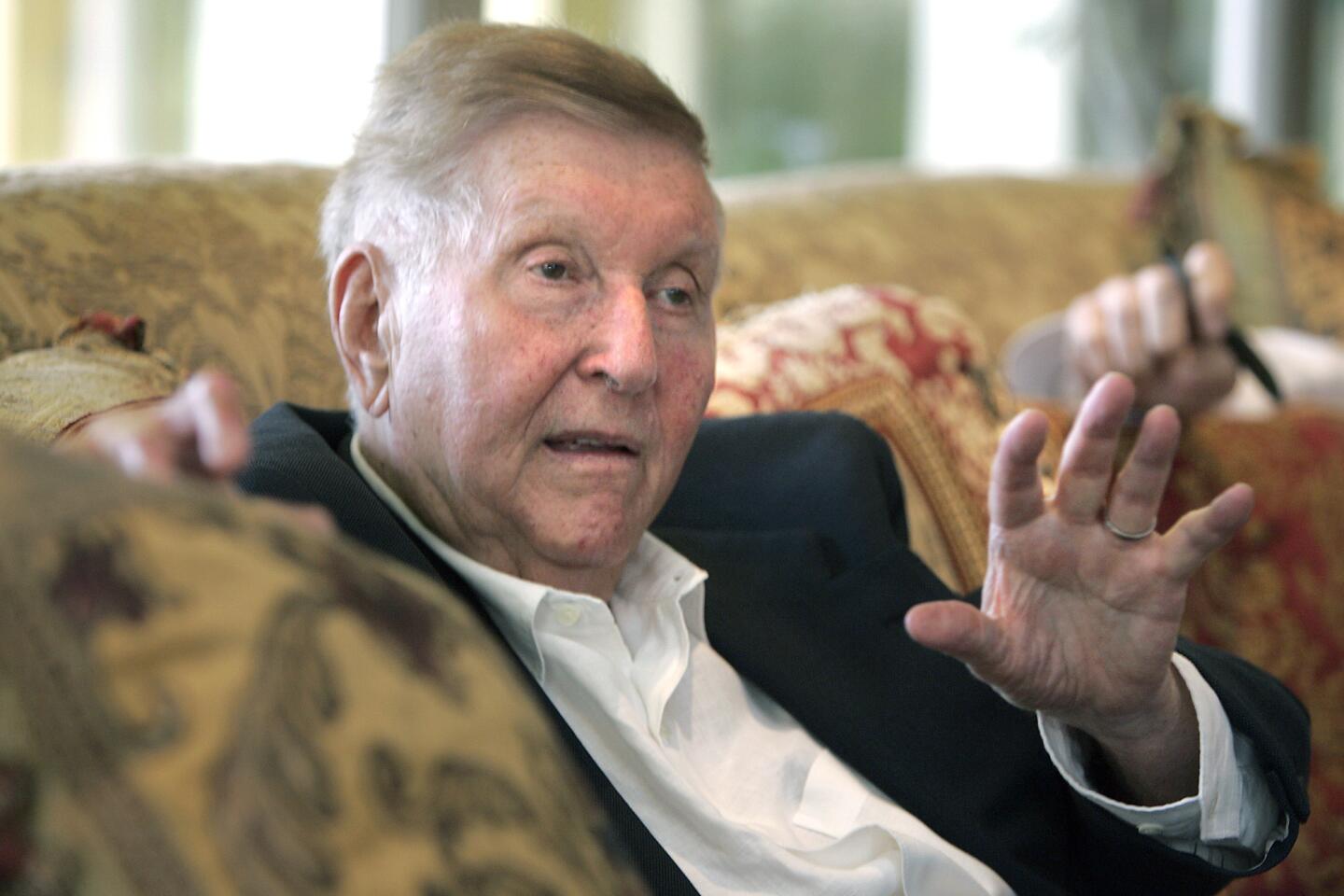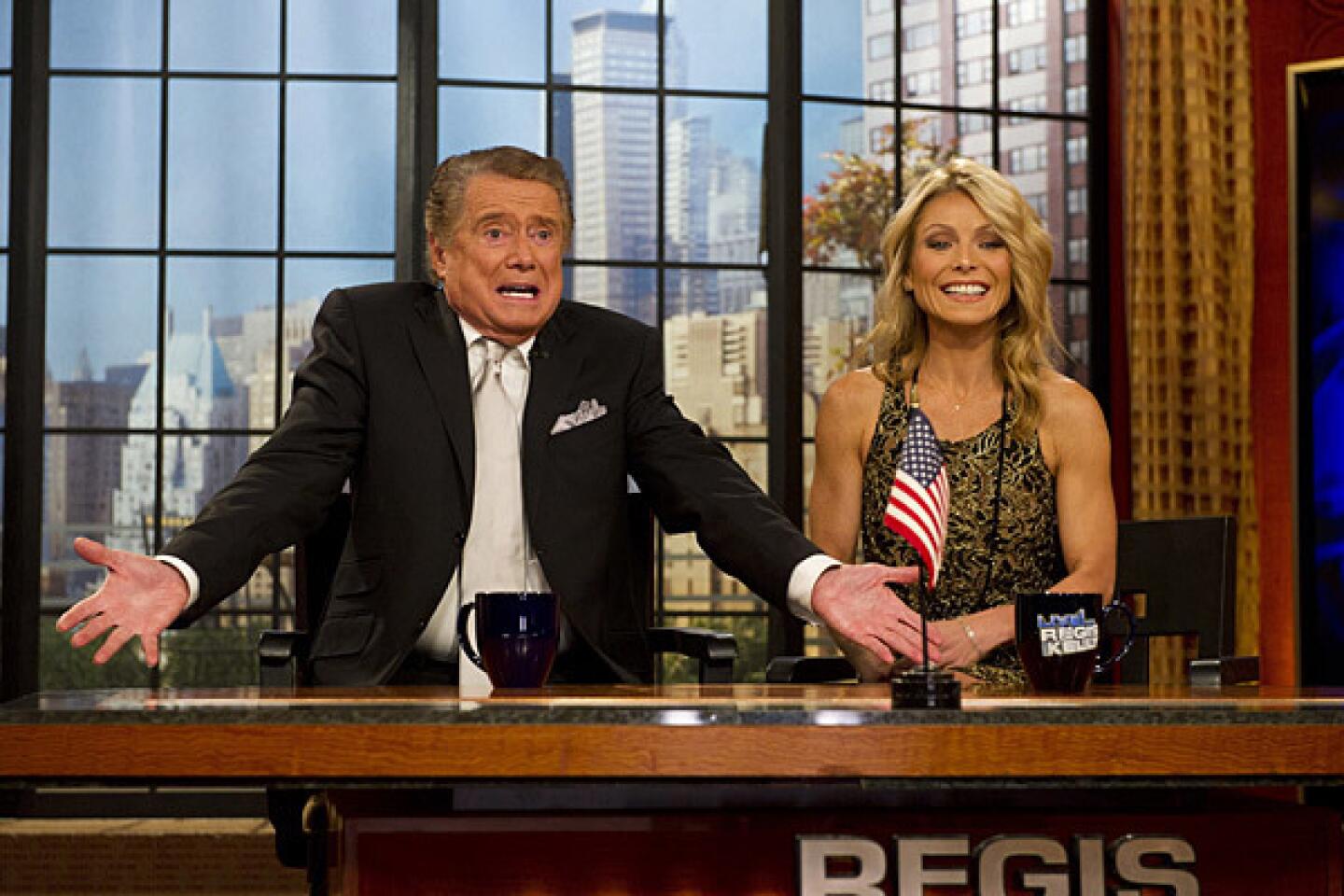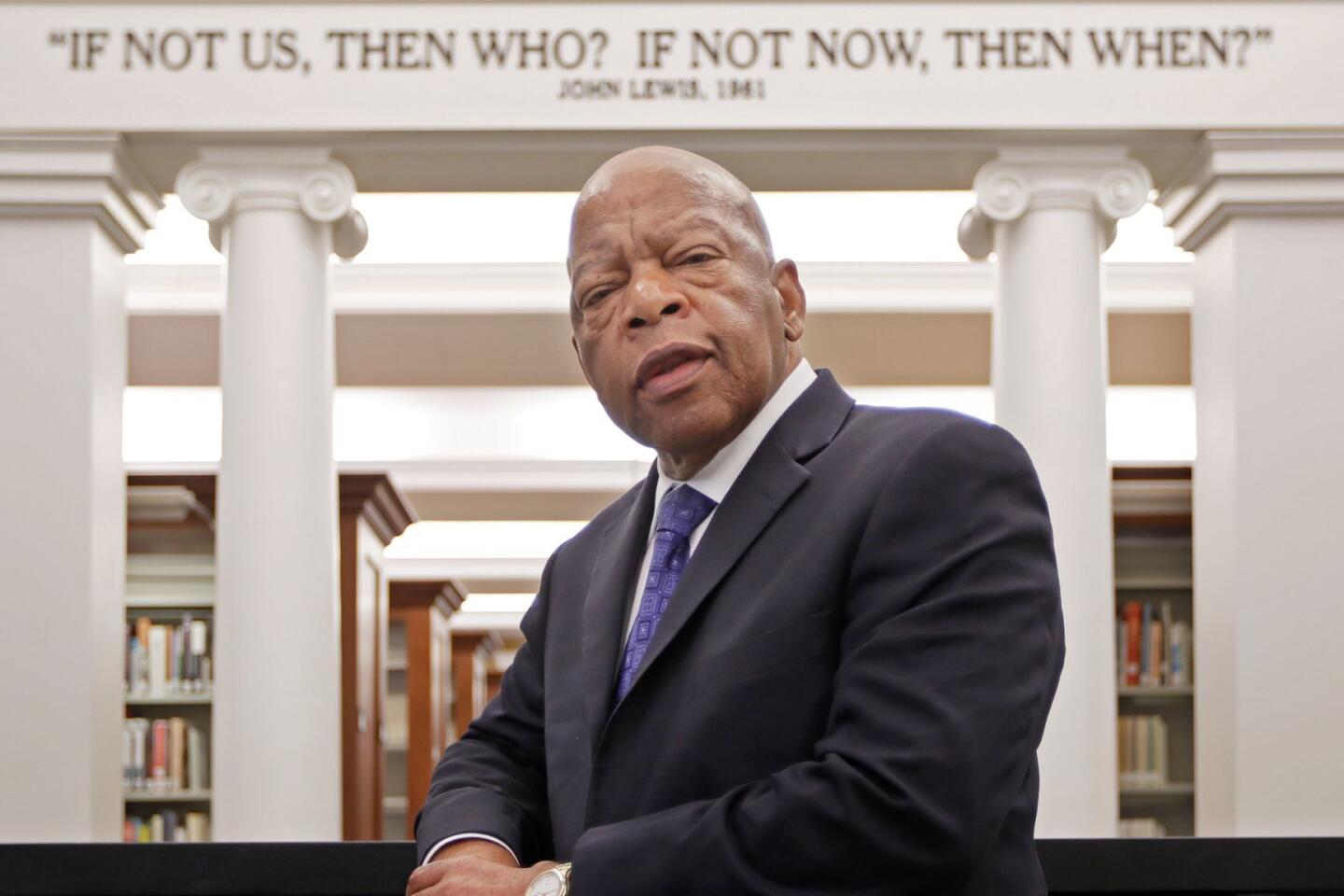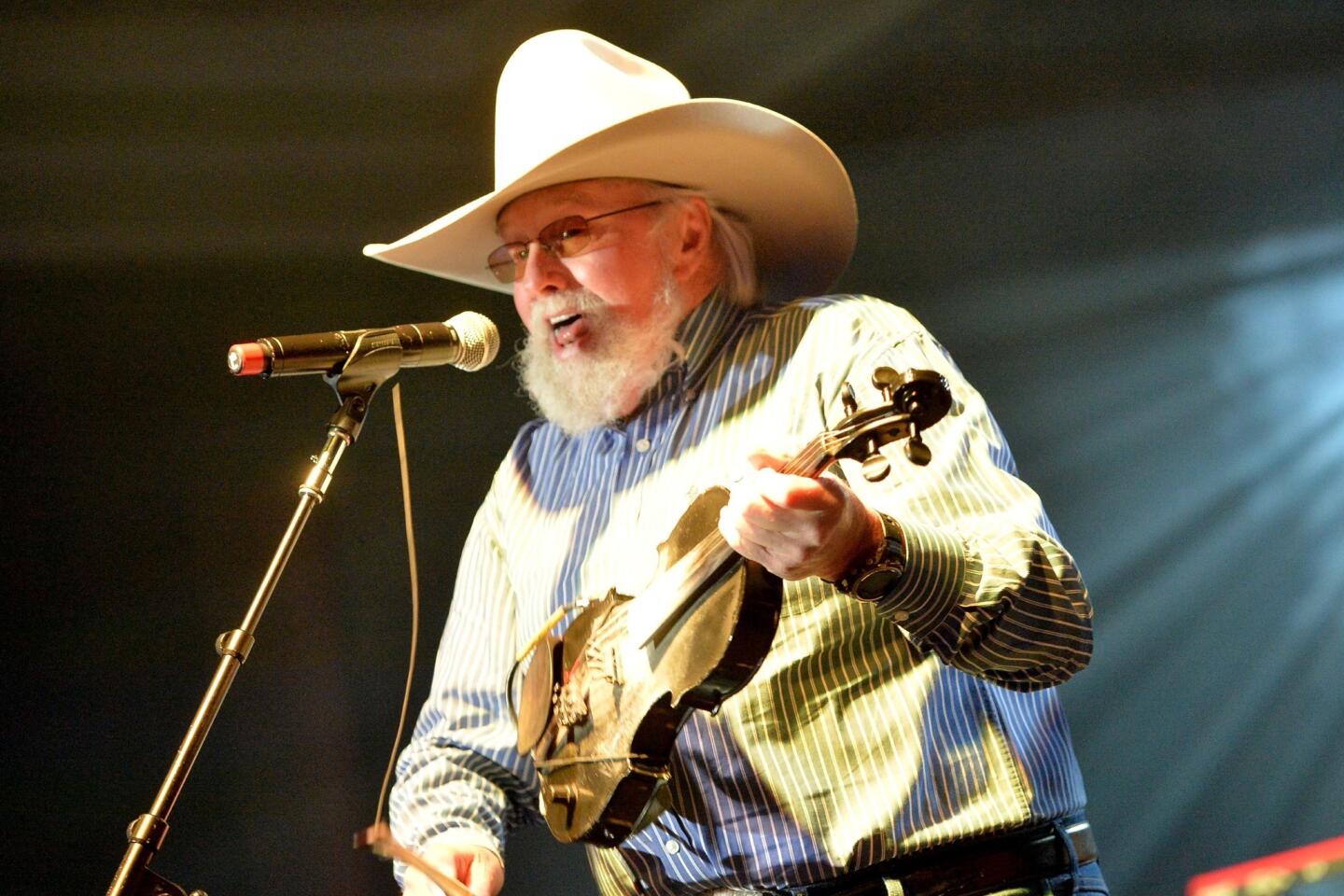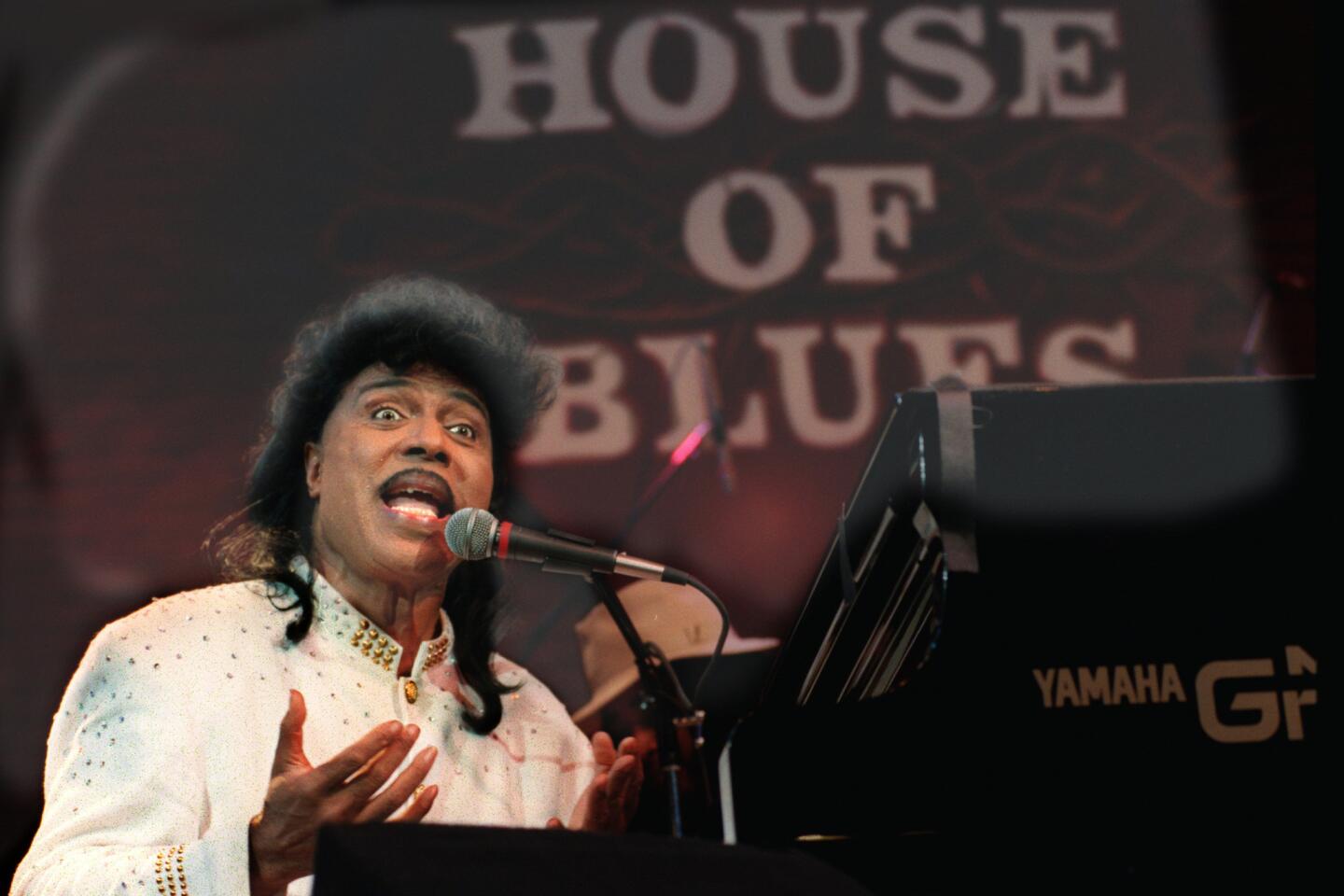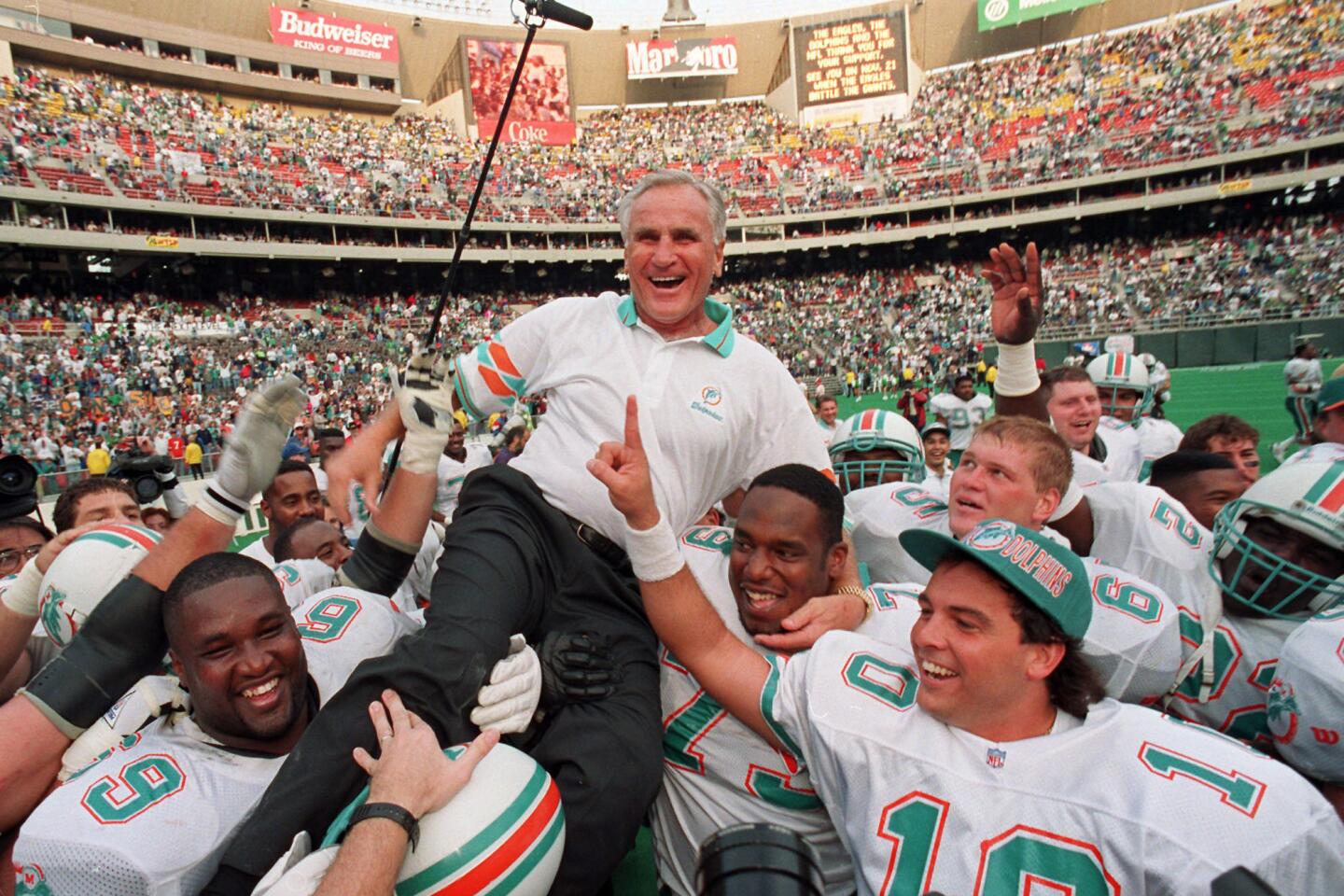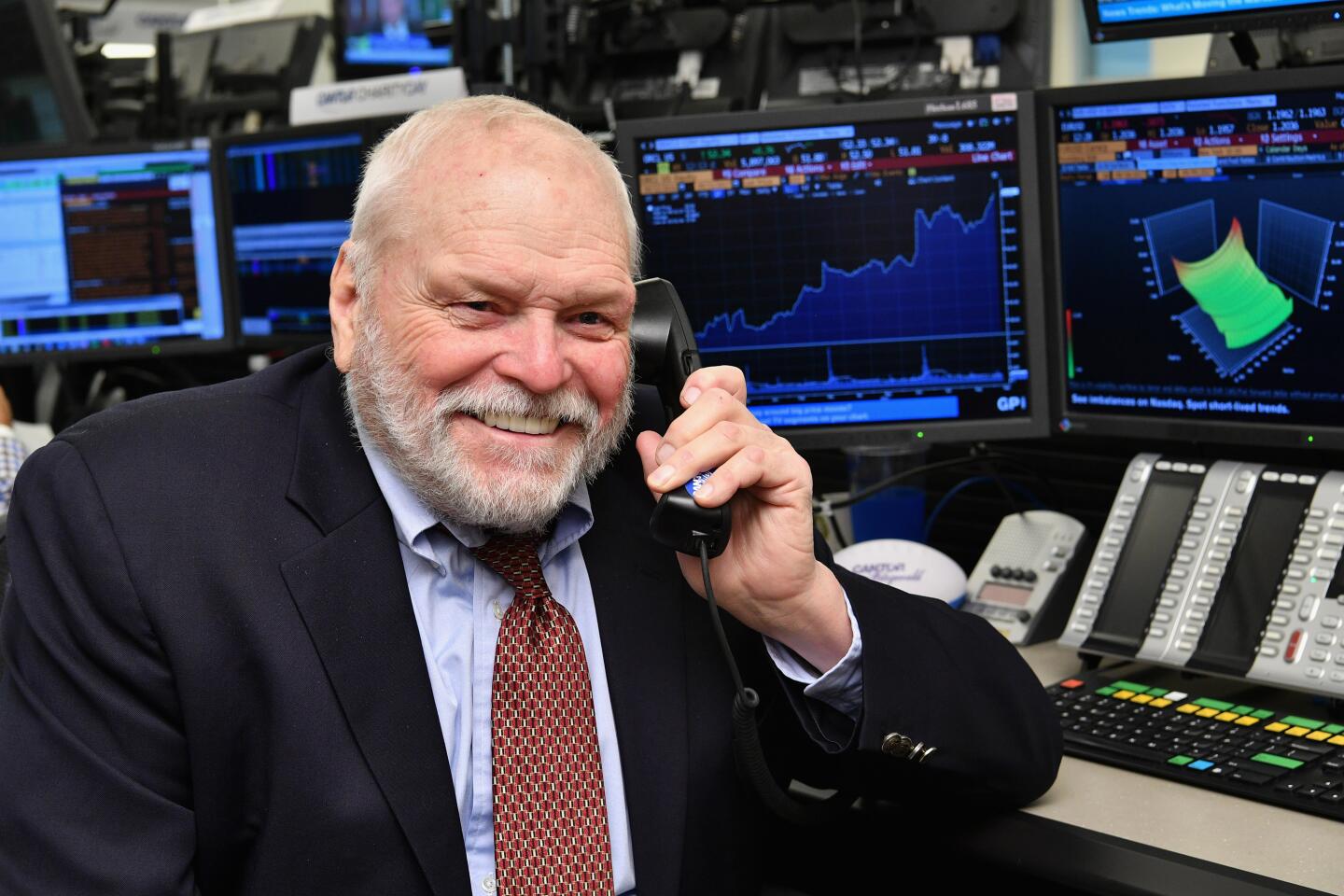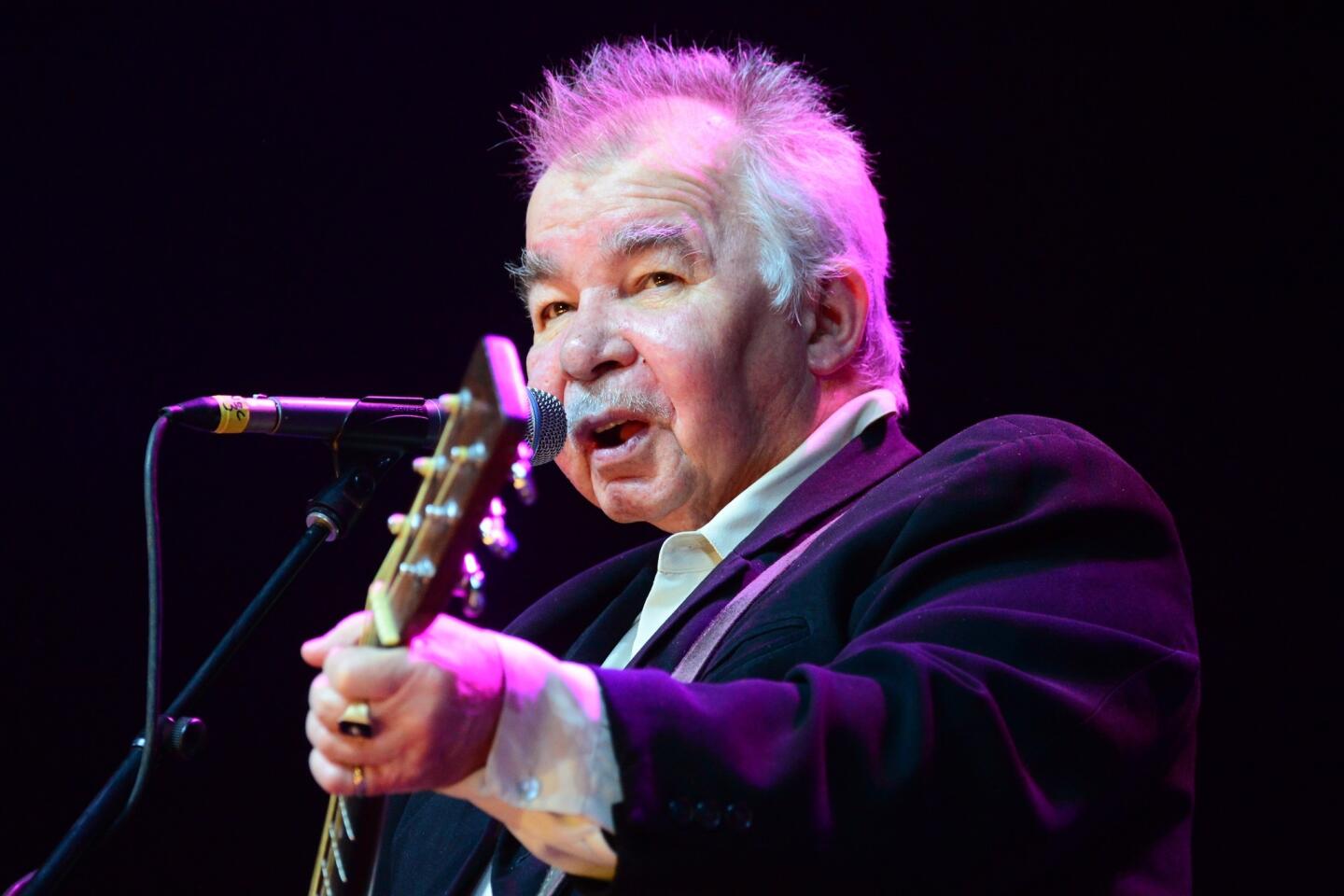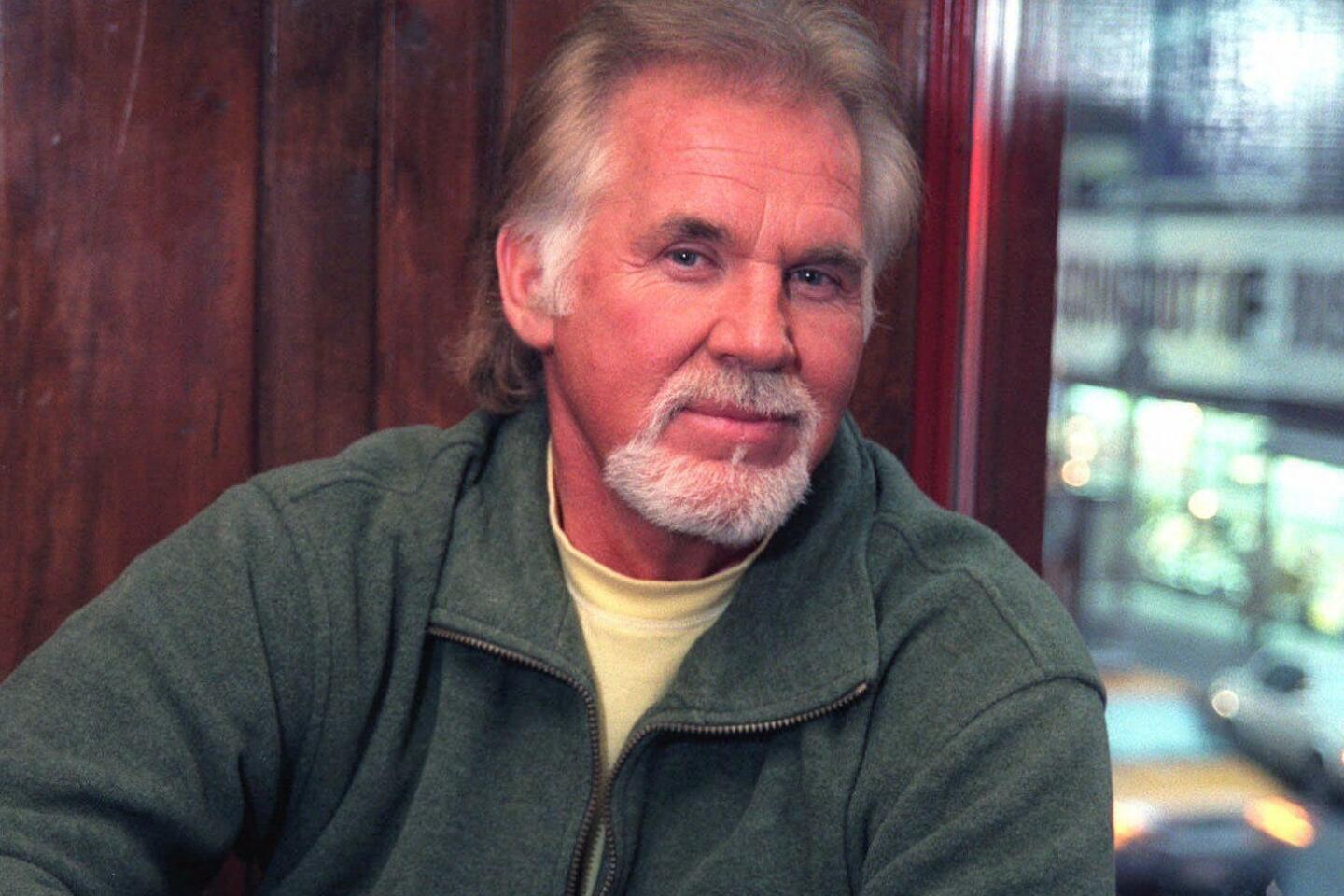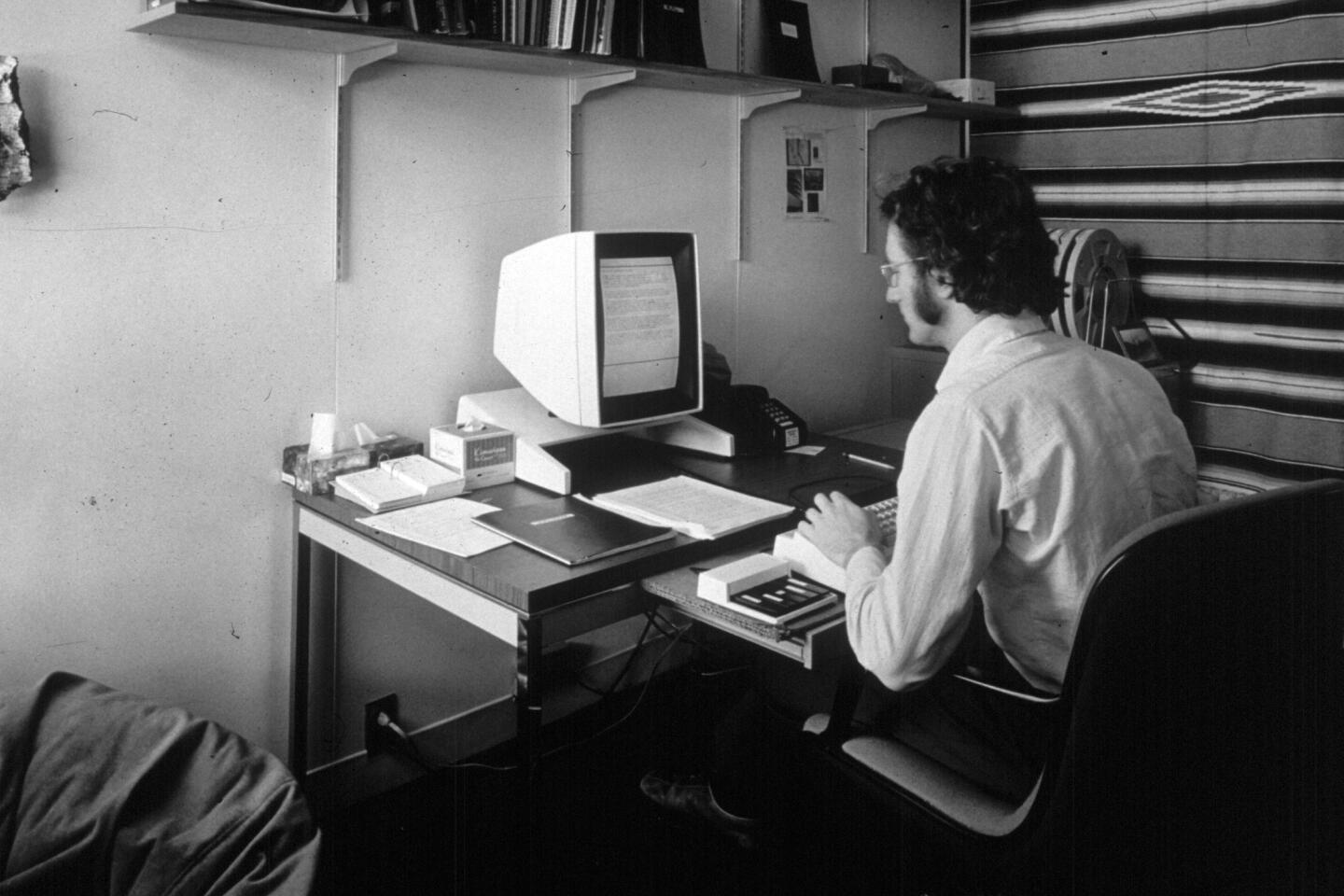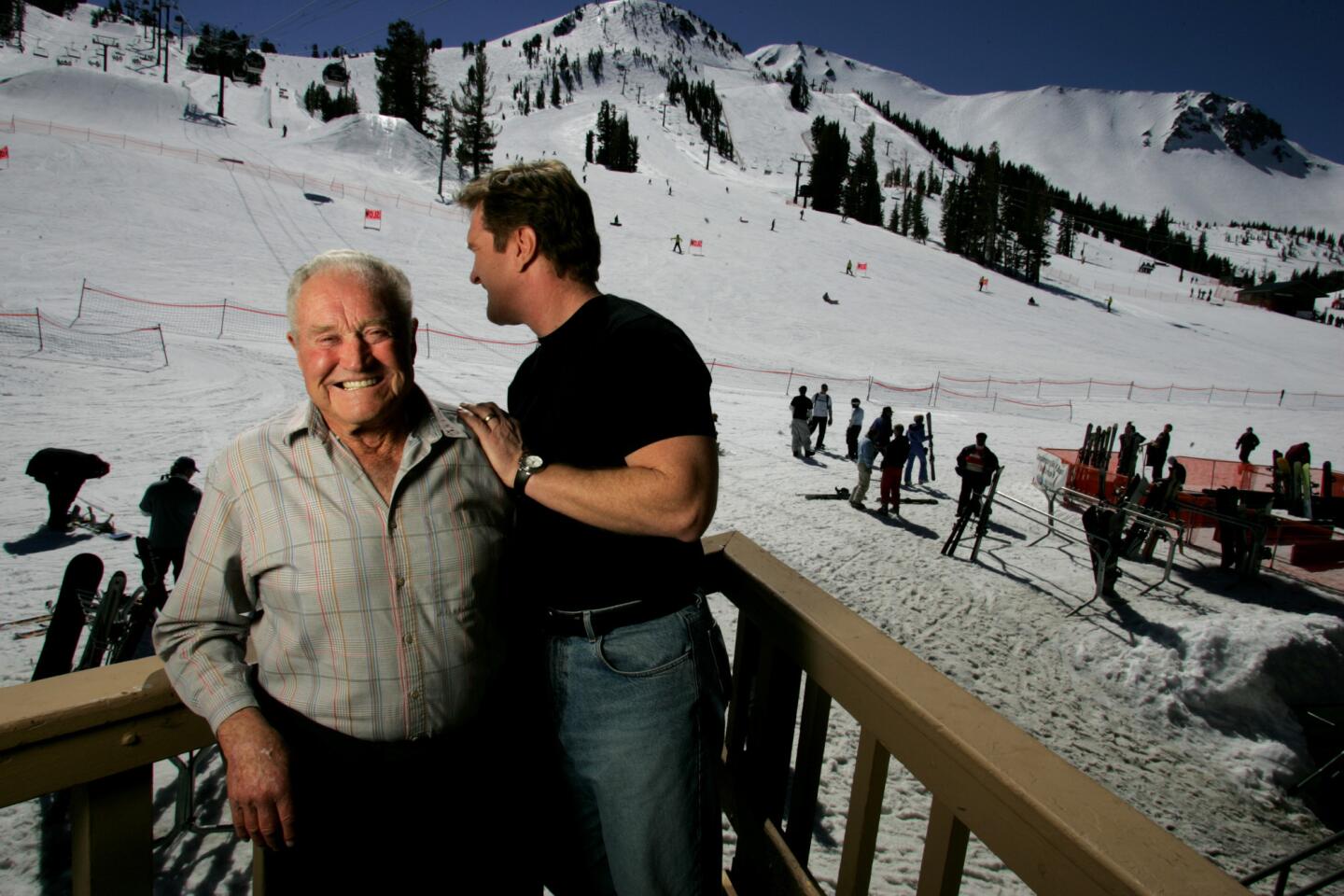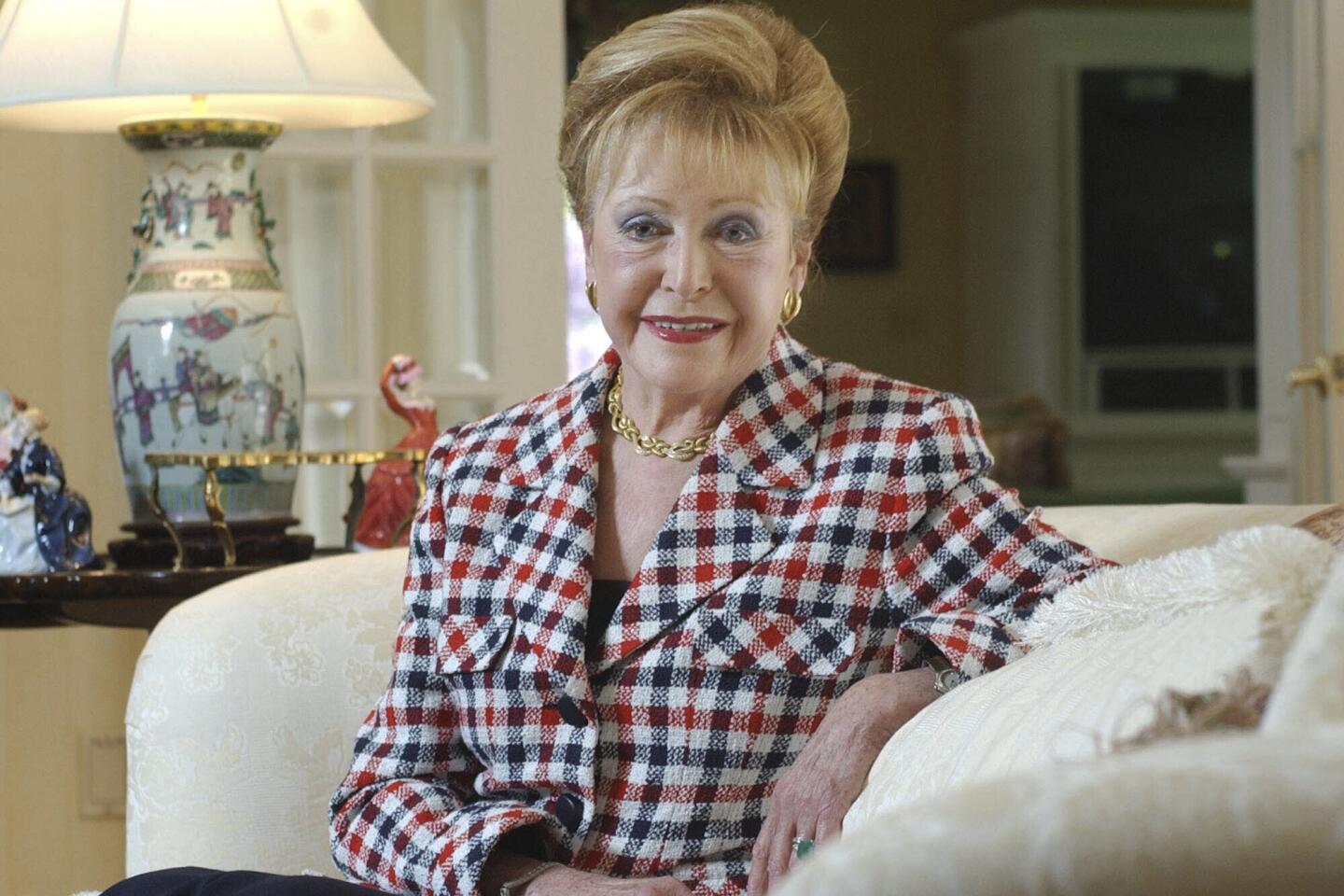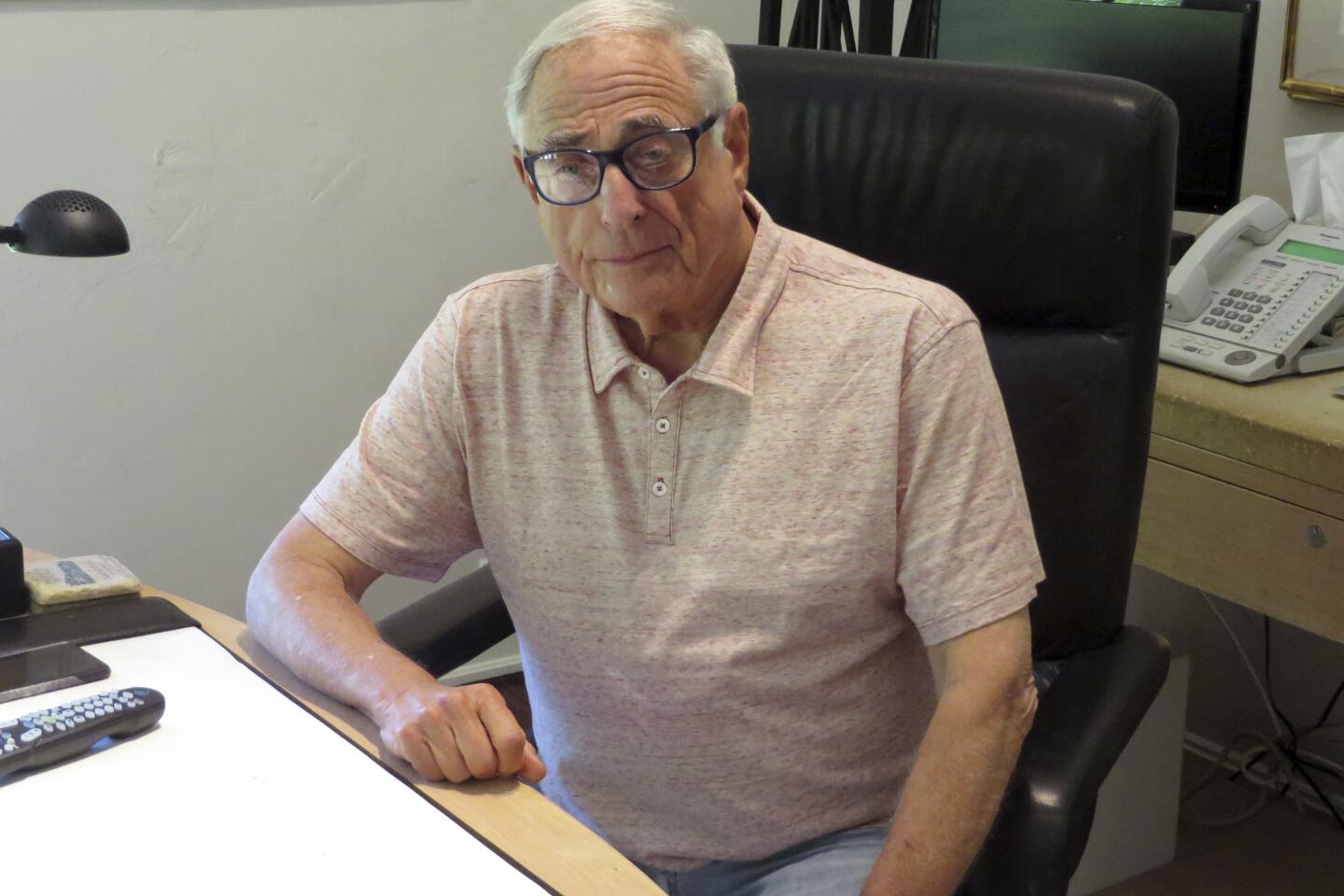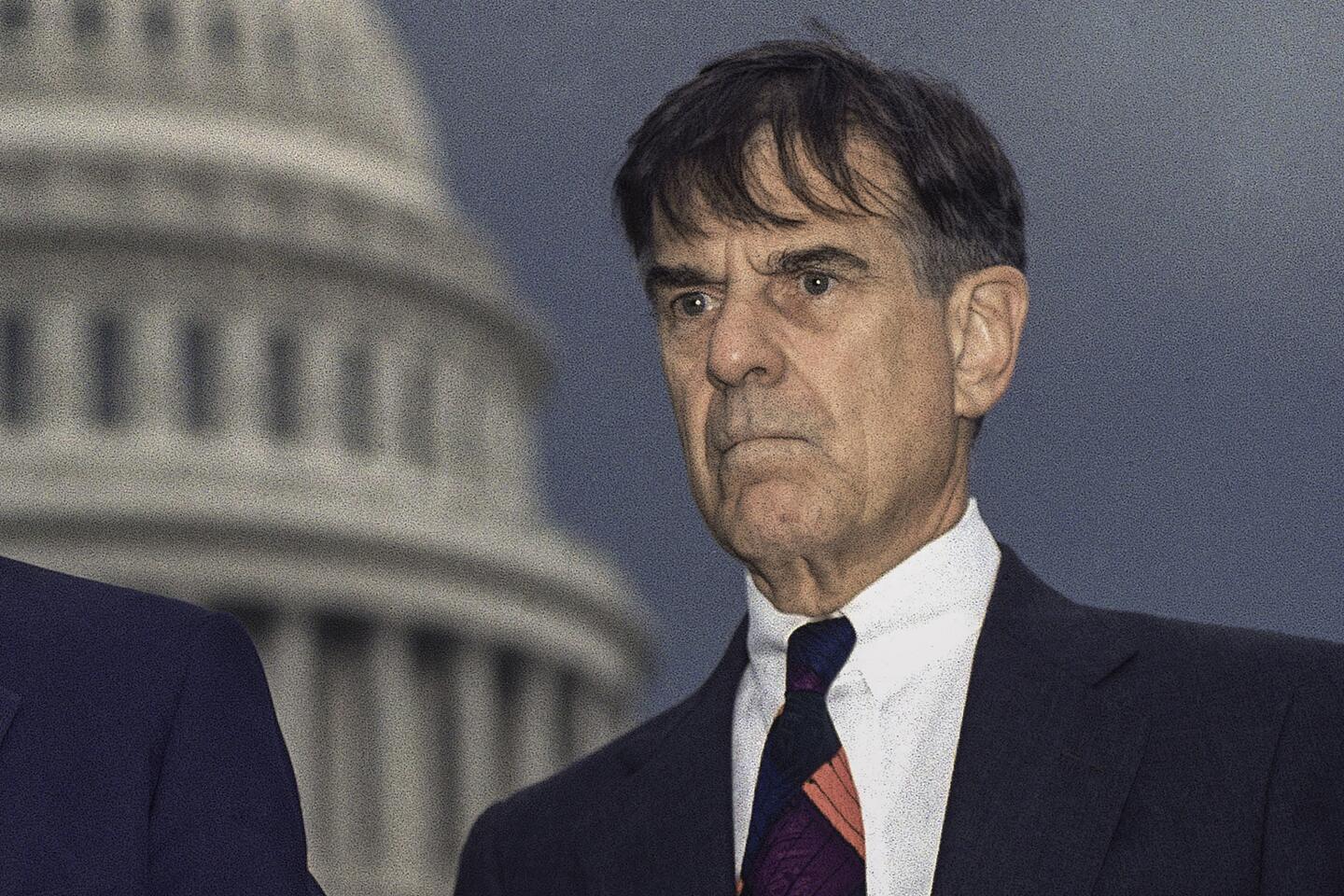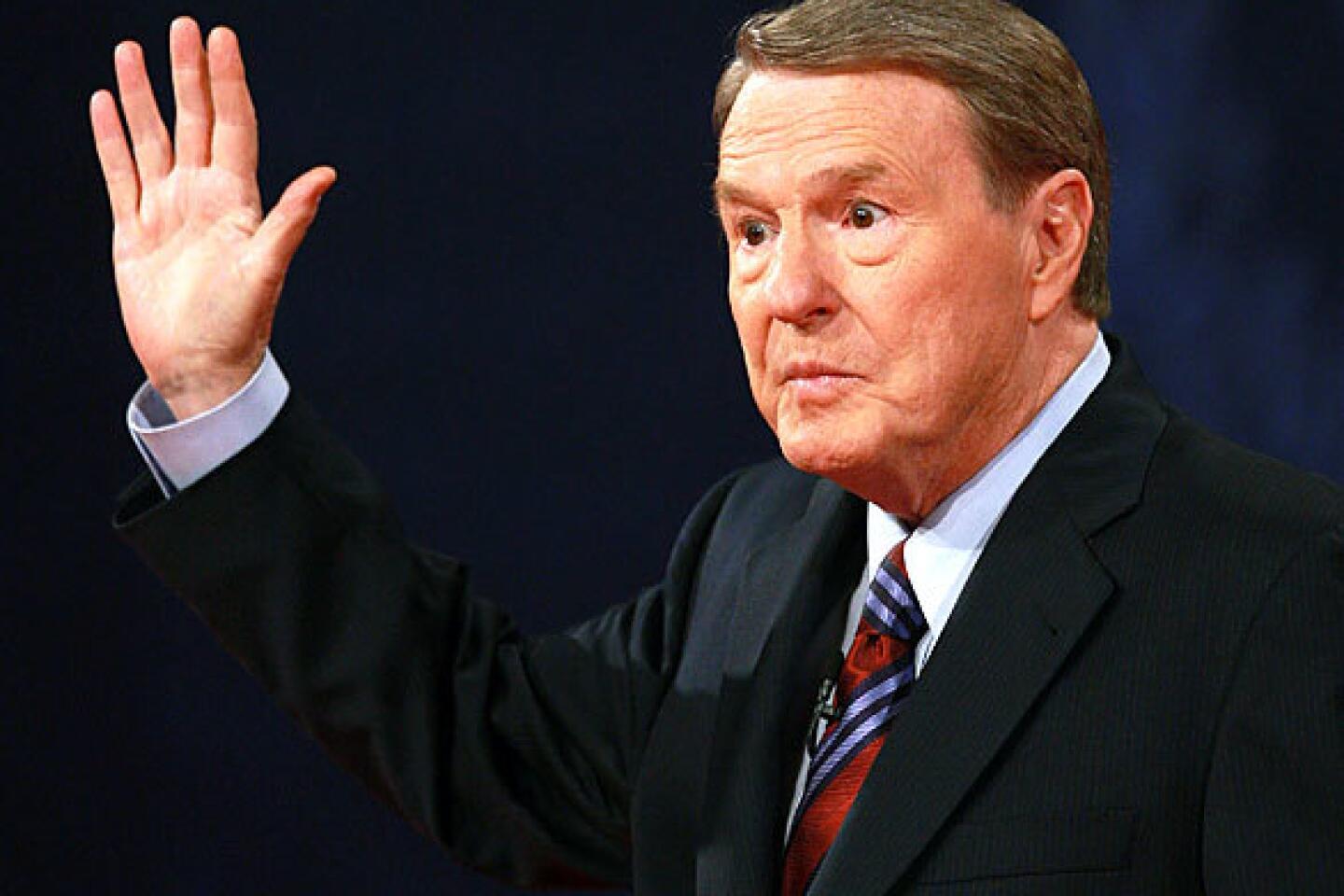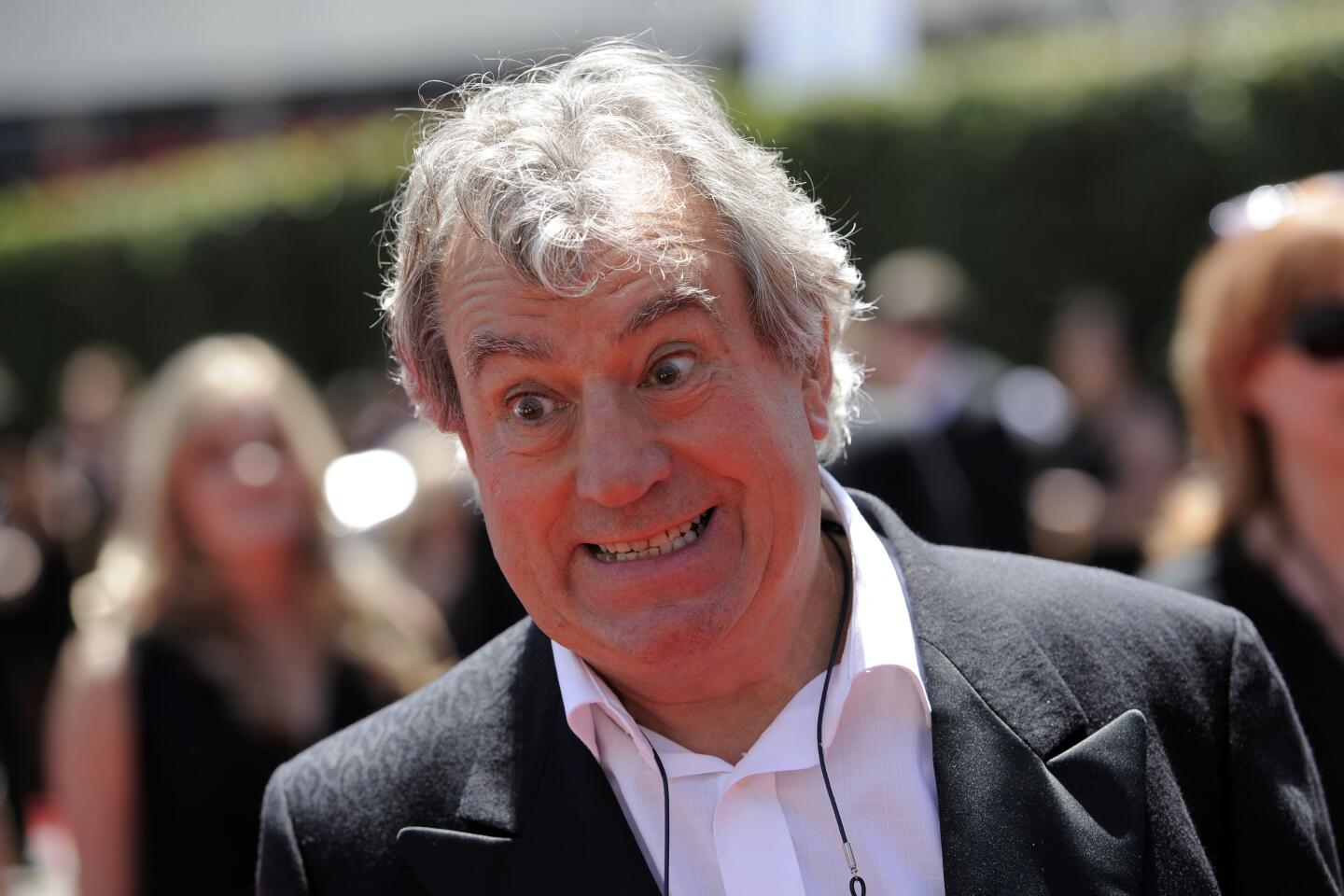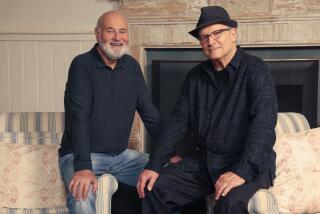Carl Reiner, prolific comedy legend who created ‘The Dick Van Dyke Show,’ dead at 98
Carl Reiner was tall, handsome and witty, but nobody’s idea of a leading man — even when he was playing himself.
In 1960, he wrote and starred in a TV pilot called “Head of the Family,” playing a character much like himself: a TV comedy writer with a young family and a split-level house on Bonnie Meadow Road in New Rochelle, N.Y. But Reiner as Reiner was a flop and the pilot went nowhere.
“We got a better actor,” he said years later, “a much better actor.”
That actor was Dick Van Dyke, and Reiner became known as the creator, writer and producer of “The Dick Van Dyke Show,” one of TV’s most fondly remembered comedy series.
A comedy giant who directed hit films such as “Oh, God!” and “The Jerk,” Reiner died Monday of natural causes at his home in Beverly Hills at age 98.
Reiner’s son and fellow filmmaker, Rob Reiner, confirmed his father’s death on Twitter.
“Last night my dad passed away. As I write this my heart is hurting. He was my guiding light,” Rob Reiner, 73, wrote.
His longtime writing partner Mel Brooks said he treasured Carl Reiner as a colleague and friend.
“Whether he wrote or performed or he was just your best friend — nobody could do it better,” Brooks said. “He’ll be greatly missed. A tired cliche in times like this, but in Carl Reiner’s case it’s absolutely true. He will be greatly missed.”
The Bronx-born Reiner worked in a machine shop after high school as he took free acting classes sponsored by the Works Progress Administration. He made $1 a week for his first paid acting gig but had to promise not to brag about his good fortune to the other cast members at a Manhattan theater.
He first came to national attention in the 1950s on Caesar’s “Your Show of Shows,” where he wrote alongside Mel Brooks, Neil Simon and other comedy legends. He remained lifelong friends with Brooks; in their later years, the two often shared dinner and a movie at Reiner’s home.
Reiner was the foil for the zany Brooks’ 2,000-Year-Old Man, an enduring routine they spontaneously devised during a slow time in the writers’ room at “Your Show of Shows.”
“I’m asking all the questions the audience would die to ask a man who lived for 2,000 years,” Reiner told NPR in a joint 2009 interview with his old pal Brooks.
“For instance,” he asked Brooks in his most serious, inquiring-reporter voice, “of all the wives you’ve had, who is your favorite wife?”
“Shirley,” the 2,000-Year-Old Man immediately responded.
“What was so special about Shirley?”
“Her friend Laila. Me and Laila — whoo, hoo, hoo!”
Carl Reiner was upset.
On “The Dick Van Dyke Show,” which ran from 1961 to ’66, Reiner occasionally played the egomaniacal Alan Brady, star of the TV show whose writing staff was headed by the show’s main character, Rob Petrie.
Reiner told The Times in 1993: “‘The Van Dyke Show’ is probably the most thrilling of my accomplishments because that was very, very personal, the most personal thing I’ve done. Because it was about me and my wife, living in New Rochelle and working on the Sid Caesar show. All those other things have just been entertainments. I was a man for hire.”
The films Reiner directed include: “The Comic” (1969), starring Van Dyke; “Where’s Poppa?” (1970), starring George Segal and Ruth Gordon; “Oh, God!” starring George Burns and John Denver; and four films starring Steve Martin — “The Jerk” (1979), “Dead Men Don’t Wear Plaid” (1982), “The Man With Two Brains” (1983) and “All of Me” (1984). The last film he directed was 1997’s “That Old Feeling,” with Bette Midler and Dennis Farina.
The critic Pauline Kael “once wrote that she’s not sure if I’m a serious filmmaker or not,” Reiner recalled in an interview. “So I assured her: I’m not.”
Reiner, a lifelong Democrat, was active on social media until the day he died. On Monday, he tweeted a rebuke of President Trump: “As I arose at 7:30 this morning, I was saddened to relive the day that led up to the election of a bankrupted and corrupt businessman who had no qualifications to be the leader of any country in the civilized world.”
The actor, straight man, comedian and emcee extraordinaire insists his career chronicle ‘is 96% absolutely true.’
Reiner’s son Rob once said of his father: “His main thrust in life is making other people happy and keeping the world which he inhabits moving. He’s what they used to call in the Catskills a tummler — somebody who keeps people engaged and stimulated. He always gets a sense of the room he’s in and expresses what’s on everybody’s mind.”
In 2000, Reiner received the Kennedy Center Mark Twain Prize for American Humor, a high point in a show business career that netted him 12 Emmy Awards, a Grammy and the American Comedy Award for Lifetime Achievement.
Most of his Emmys were for writing or for his performance in supporting roles.
“He didn’t have to be the star,” Billy Crystal wrote in his foreword to Reiner’s “I Remember Me,” a 2013 memoir. “He is what he is: A nice genius.”
The son of a watchmaker, Reiner was born in New York City on March 20, 1922. After graduating from high school in the Bronx, he worked as a shipping clerk and then as a machinist’s helper in a shop that made millinery equipment.
Reiner was 16 when his older brother, Charlie, saw a newspaper announcement about free drama classes sponsored by the Works Progress Administration.
Still working at the machine shop, Reiner took classes and began acting at a midtown Manhattan theater run by Paul Gilmore, a stage actor who had starred in silent movies.
He did summer stock outside Rochester, N.Y. — his first trip away from home, he said in an interview for the Archive of American Television.
Auditioning with a Shakespearean repertory company, he followed instructions to the letter.
“Say after me,” the director told him, “Now is the winter of our dithhcontent.”
“Now,” Reiner orated, “is the winter of our dithhcontent ”
“I was feeling great,” he recalled to an interviewer in 2010. But a few minutes later, a friend offstage told him how badly he’d screwed up: “You just impersonated a guy with a stroke!”
He got the job and for two years toured high schools and colleges throughout the South.
Other early jobs included performing at Allaben Acres, a summer camp for adults in the Catskills. It was there he met jazz singer Estelle Lebost, his wife for 65 years until her death in 2008.
Reiner used some of his struggling-actor experiences in his 1958 novel, “Enter Laughing,” whose main character floridly reads a stage direction — “Enter laughing” — as a line at one of the most hilariously botched auditions in theatrical history.
“Enter Laughing” was adapted by Joseph Stein as a Broadway play that ran from 1963 to 1964 and in 1967 was turned into a movie — the first that Reiner directed.
Drafted in World War II, Reiner was sent to Georgetown University in Washington, D.C., for training as a French interpreter. He wound up touring the South Pacific in GI revues as part of a Special Services entertainment unit headed by Maj. Maurice Evans, a noted Shakespearean actor.
After his discharge in 1946, Reiner appeared in a couple of Broadway musicals, including, in 1950, “Alive and Kicking.”
One of its backers, Max Liebman, hired Reiner for an upcoming comedy sketch show he was producing: NBC’s “Your Show of Shows.”
“It was the happiest thing that ever happened to me,” Reiner once said.
Appearing in roles as varied as a Confederate soldier, a suburban commuter and a waterfront hoodlum, Reiner was often serious and straightforward while Caesar was hurtling out of control.
“As a second banana,” Reiner told TV Guide in 1960, “I had a chance to do just about everything a performer can ever get to do. If it came off well, I got applause. If it didn’t, the show was blamed.”
Working with such writers as Brooks, Mel Tolkin, Lucille Kallen, and Neil and Danny Simon was “like recess,” Reiner said.
The writers’ room also provided the creative environment that gave rise to the 2,000-Year-Old Man.
Making fun of the interviews on a TV show called “We, the People,” Reiner pepped up a listless meeting by suddenly pointing to the 24-year-old Brooks: “Here with us today, ladies and gentlemen, is a man who was actually at the scene of the Crucifixion, 2,000 years ago. Isn’t that true, sir?”
Without missing a beat, Brooks let loose with an Old World-weary sigh and said, “Oooooh, boy.”
In awe, Reiner asked: “You knew Jesus?”
“Jesus — yes, yes,” Brooks replied in a Yiddish accent, struggling to remember. “Thin lad. Wore sandals. Always walked around with 12 other guys. Yes, yes, they used to come into the store a lot, never bought anything. They came in for water. I gave it to them. Nice boys, well-behaved …”
The spontaneous routine, which went on for some time, had the entire room in stitches.
After “Your Show of Shows” ended in 1954, Reiner became a regular on “Caesar’s Hour,” a comedy-variety show that ran from 1954 to 1957 and, in 1958, on a short-lived effort called “Sid Caesar Invites You.”
While writing for singer Dinah Shore’s variety show, he came up with the idea of a comedy series loosely based on his own life.
The ultimate result was groundbreaking, even if Reiner wrote himself out of the lead role.
“Husband and wife, though still sleeping in separate beds, were shown to actually have a physical relationship, and Mary Tyler Moore was even shown wearing capri pants, unheard of at the time,” according to the Museum of Broadcast Communications.
“The Dick Van Dyke Show” featured the wisecracking Rose Marie as writer Sally Rogers, an equal in status and cleverness to Morey Amsterdam, who played her fellow writer Buddy Sorrell.
Reiner occasionally played Rob’s tyrannical, toupee-wearing boss, TV star Alan Brady. He said he took the role because he didn’t think a big star would.
“My idea was to play him with his back to the audience,” Reiner told The Times in 1994. “I never intended to be seen very much.”
The show earned Reiner multiple Emmys for writing and producing.
In 1995, he reprised the Alan Brady role for an episode of the series “Mad About You,” which earned him another Emmy.
Reiner also wrote screenplays, starting with “The Thrill of It All” (1963) and “The Art of Love” (1965). Both were directed by Norman Jewison, who later directed Reiner in the 1966 comedy “The Russians Are Coming, the Russians Are Coming.”
As an actor, Reiner appeared as con man Sol Bloom in the 2001 remake of “Ocean’s Eleven” and its two sequels.
In addition to “Enter Laughing,” he wrote the novels “All Kinds of Love,” “Continue Laughing,” “NNNNN: A Novel,” and “Just Desserts: A Novellelah,” a story based on a fictional novelist’s email to God.
Although he was raised in a Jewish household, the director of “Oh, God!” was an atheist most of his life.
“It’s hard for me to believe in God after the Holocaust,” he told the Arkansas Democrat-Gazette in 2009. “He’s either not listening or he’s very busy making flowers.”
Reiner also wrote two children’s books: “Tell Me a Scary Story” and “Tell Me Another Scary Story … but Not TOO Scary!”
Often asked for the secret to writing humor, Reiner would say, “Make yourself laugh.”
But that didn’t work for everyone, he was quick to acknowledge.
In “I Remember Me,” he recalled “a fresh-faced exec” ambling into an office at NBC, pulling up an easy chair, putting his feet on a coffee table, and suggesting a stream of surefire funny bits for “The Dick Van Dyke Show.”
With his staff, Reiner looked on in stunned silence.
“You wanna know what I think is funny?” Reiner finally asked.
He walked over to the coffee table, pulled off one of the astounded hot shot’s shoes, and threw it out an open window.
“That, I think, is funny!”
In addition to Rob Reiner, survivors include son Lucas Reiner, an artist; daughter Annie Reiner, a psychoanalyst; and five grandchildren.
Staff writer Nardine Saad contributed to this report. McLellan and Chawkins are former Times staff writers.
